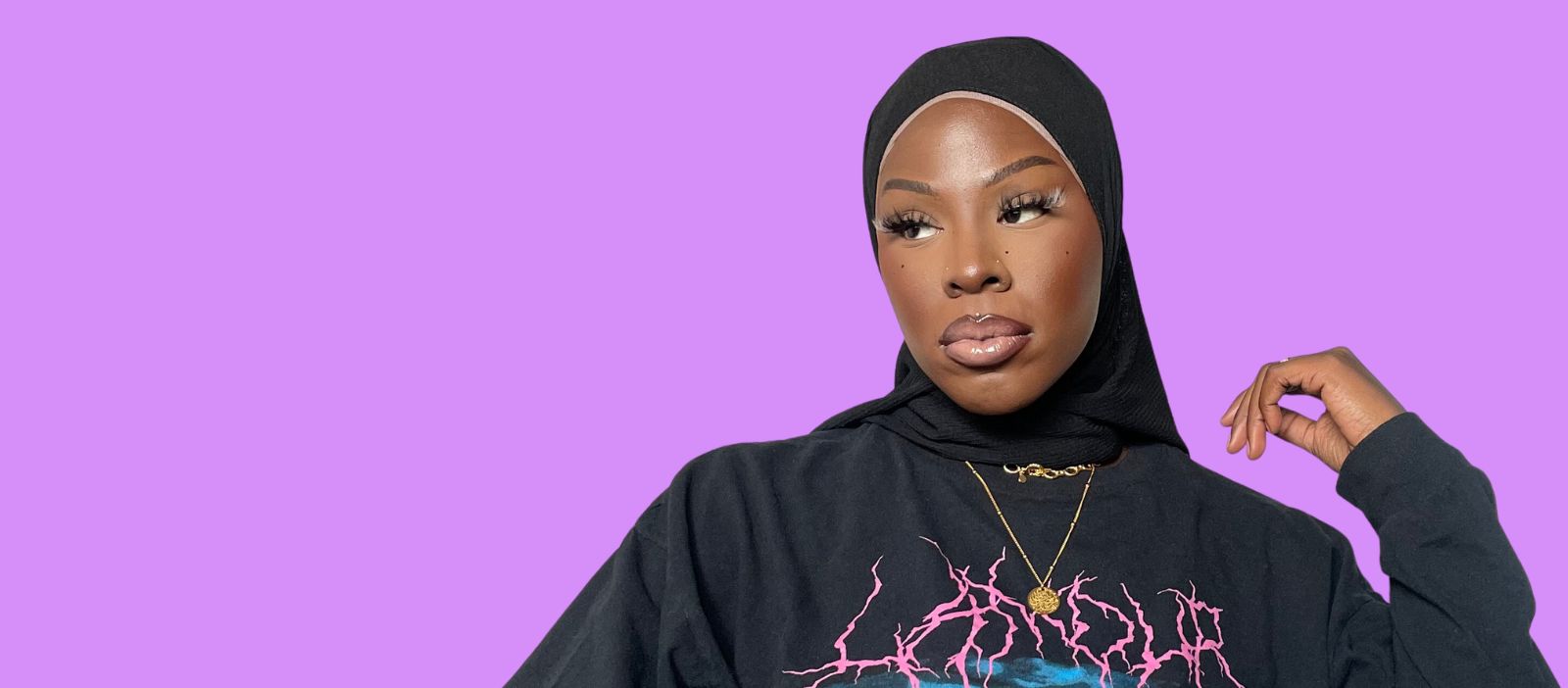
Ameena Roshae Q&A: ‘Seeing a hijab-wearing woman style revealing clothing will make people stop scrolling’
Ameena Roshae balances creating content for her TikTok followers with supply teaching. Photograph courtesy of Ameena Roshae
The fashion influencer on faith, modesty and claiming a space for Black Muslim women
–
Like many self-employed people in the world of fashion, Ameena Roshae, 32, found her work as a freelance makeup artist drying up during the Covid-19 lockdowns. It wasn’t long, however, before she found an avid audience on TikTok. She used the app to showcase her unique sense of style and sometimes transformed revealing items of clothing into modest outfits.
Now balancing content creation with supply teaching, Roshae has gained a following of more than 200,000 people and her videos have attracted 7 million likes. Here she talks about faith and life as a social media influencer, not compromising on her identity and usually being the only Black Muslim woman in the room.
This interview has been edited for length and clarity.
You have a very individual and innovative approach to fashion, including cutting dresses to make matching hijabs. Where does your inspiration come from?
I grew up with six brothers and they all had hand-me-down clothes. I had to remake and create new pieces for myself. When I was younger, one of my brothers threw out a pair of Levi jeans and I figured out a way to style them to suit me. When they were worn out, I got some bandanas, sewed them together and put a patchwork over them. Ever since childhood, I’ve always looked at an item and figured out different ways to wear it.
TikTok is filled with fleeting videos. What do you think stops people from scrolling past your posts?
I’m very intentional about the way I relay my content. You can scroll past videos so quickly on TikTok, so you have to give a certain amount of energy and speak in a particular tone to make people stop. That’s what will catch people. I also style clothes that aren’t necessarily modest, and make them adaptable to my taste. Seeing a hijab-wearing woman trying to style revealing clothing is going to make people stop scrolling.
How do you balance your faith with the emphasis on material possessions in fashion?
I used to be a hoarder and it affected my mental health severely. All my clothes used to be spread across three rooms and hanging over the banisters. I also had 16 black bags full in the front room and unopened packages that brands sent me. Eventually, that made me understand why, Islamically, we’re meant to keep things simple and why we’re not supposed to be excessive. I began to feel suffocated. My faith helped me stop being so excessive and I ended up getting rid of 90% of my wardrobe.
What advice would you give to women who want to start dressing modestly but do not want to compromise on their style?
Don’t be in a hurry to get rid of your existing clothing. Everything is adaptable. Modesty is subjective and there are levels to it. Don’t change who you are and adapt your items of clothing to fit where you’re at on your journey. You also need to focus on where you are at with your faith and grow from there.
As a Black Muslim woman, you often stand out in your industry. What do you do to ensure you’re always showing up as your true self?
Making sure I don’t take my scarf off my head ensures that I stay true to who I am. It is part of my identity. If I take it off, it’s like I’m bald. When I go to an event or if I’m in a space where I’m the only one who looks like me, it’s even more important for me to make sure I represent myself with my scarf on. Now that I’m entering influencer spaces, it won’t be long until I help bring other Black Muslim women in too.
What can brands do to create an environment where you’re not the only hijab-wearing woman in the room?
Brands do need to invite more Muslim women to their events but, through working with them, I can now see that in an effort to maintain a sense of haya (modesty), some Muslim women can come across as reserved and unapproachable in these spaces. I also understand that sometimes brands don’t want to offend Muslim women by inviting us to spaces we don’t want to be in — for example, where alcohol is served. I think I’m accepted because I allow my personality to shine while still staying respectful and maintaining my morals and values.
Topics
Get the Hyphen weekly
Subscribe to Hyphen’s weekly round-up for insightful reportage, commentary and the latest arts and lifestyle coverage, from across the UK and Europe
